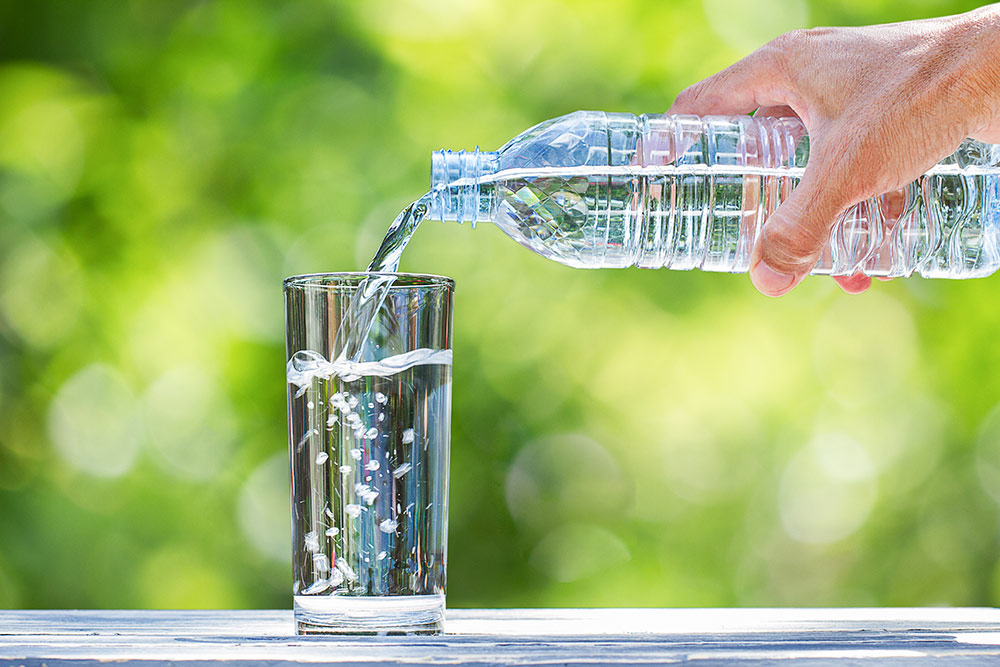Heart disease, hypertension, and diabetes are just a few among several health conditions that mainly affect the older adult population. With the plethora of illnesses that threaten a senior’s health, some may be likely to be overlooked, one of which is dehydration.
Whether you are an adolescent or a 40-something mom, drinking enough water has always been a health concern. However, studies suggest seniors aged 65 and above have a higher chance of suffering from underhydration and dehydration due to many factors.
In fact, a survey revealed that almost 40% of the older adult population residing in senior communities might be under-hydrated, which can be dangerous as it can lead to the following diseases:
- Urinary tract infections
- Heat injury and heat stroke
- Viral and bacterial infection because of a weakened immune system
- Kidney problems
- Hypovolemic shock
- Seizures
To encourage you and your loved one, here are five essential reasons why you need to drink up at least eight to eleven glasses of water a day.
1. Strengthens the Body
Water makes up almost 60 to 70% of your body. Several of your body systems cling onto water to continue their normal function, especially your muscles, bones, and joints.
The muscle system is composed of 80% water. Losing as little as 2% of your body’s water content already constitutes underhydration, which can affect the normal function of your body, such as:
- Temperature regulation
- Physical performance
- Decreased motivation and energy levels
- Reduced joint lubrication, causing you to suffer from mobility issues.
Moreover, seniors need to focus on staying hydrated since they have less body mass than younger individuals.
So whether you like to work out or jog, it is essential to maintain a healthy fluid level in the body to up your physical performance.
2. Improve Brain Function
Staying hydrated not only allows your body and muscles to perform at a higher level but also your brain.
Your brain gets powered up by brain cells, which primarily rely on water to carry out its functions. If there’s little water reserve left in your body, then you would not have enough juice to get the brain cells active, thus resulting in cognitive impairment.
Moreover, water helps your blood deliver the right amount of oxygen, energy, and nutrients to your brain.
Aside from cognitive decline, too much fluid loss can result in:
- Declination of the brain’s executive function
- Foggy memory
- Problems in concentration
- Problems in motor coordination
- Increase the risk of developing dementia
Chugging enough fluids every day allows you to experience an increased learning capacity and a clear understanding.

3. Promotes Good Digestion
Aging comes with several physical consequences that put you at greater risk of acquiring a health condition. One example is the slowing down of your metabolism or digestive tract function.
As you age, the muscles involved in digestion become weak and stiff. The worn-out tissues around it cannot produce new ones as quickly as before, affecting the way you digest food.
However, you can still do proactive practices to help your muscles digest food, such as drinking ample amounts of water during and after every meal.
Water helps your digestive muscles break down the food you ate, allowing your tissues to absorb every bit of nutrients it contains. It also helps defecation and prevents constipation.
4. Helps in Excreting Toxins
Aside from helping you absorb dietary nutrients, water also aids in excreting toxic substances and waste materials in your body.
Here’s how an adequate amount of H2O aids you in getting rid of the non-essential substances that enter your body.
- Water relaxes the blood vessels so the kidneys can easily filter blood.
- Water helps your kidneys remove waste materials in the form of urine.
- Water softens the feces, helping the body remove it quickly.
- Water aids the body in eliminating excess waste through sweat.
- It also regulates body temperature through sweating.
This means that staying hydrated helps you stave off certain diseases like kidney stones, constipation, and urinary tract infections.
5. Prevents Dehydration
Dehydration is the root cause of many diseases that can threaten seniors’ health and quality of life.
Since water is crucial to your body, it is imperative to do everything in your power to ensure that you are well-hydrated at all times. All seniors prove to have a higher risk of developing the condition, but some are more vulnerable than most. This includes:
- Seniors residing in a poorly-staffed senior residence.
- Those with an underlying medical condition
- Those with cognitive impairment and mental illness
- Those mobility difficulties
- Seniors who take multiple medications (e.g., diuretics)
- Those with acute illnesses
Aging can also dull your sense of thirst, so it is essential to stay vigilant and drink water often, even when you are not thirsty.
Drinking water helps you ward off diseases, keeps your mind sharp, cleanses your body, and keeps it in shape. There are no drawbacks in staying hydrated; it only has one path–the path to wellness.
Tips on How to Stay Hydrated
Staying hydrated is easier said than done, especially if you are a busy senior that has his/her day scheduled to the minute. Here are some smart tips and tricks to always remember to drink up.
- Always bring a water jug or tumbler wherever you go. Before going back home, make sure that the jug’s contents are already in your system.
- Train yourself to drink water every morning and before you go to bed, as well as before and after every meal.
- Do not wait until you are thirsty. Set the alarm with a one to two-hour interval to remind yourself that it’s time to drink up.
- Bring flavor to your water so you would be eager to drink it. You can add a splash of lemon extract. You can also drink bean-brewed coffee. Just refrain from indulging in sports drinks and fruit juices as they have a lot of additive sugars.
- Try drinking milk on some days instead of water.
- Besides your daily dose of H2O, you can also incorporate some water-rich fruits and veggies into your daily diet (e.g., watermelon, cucumbers, celery).

